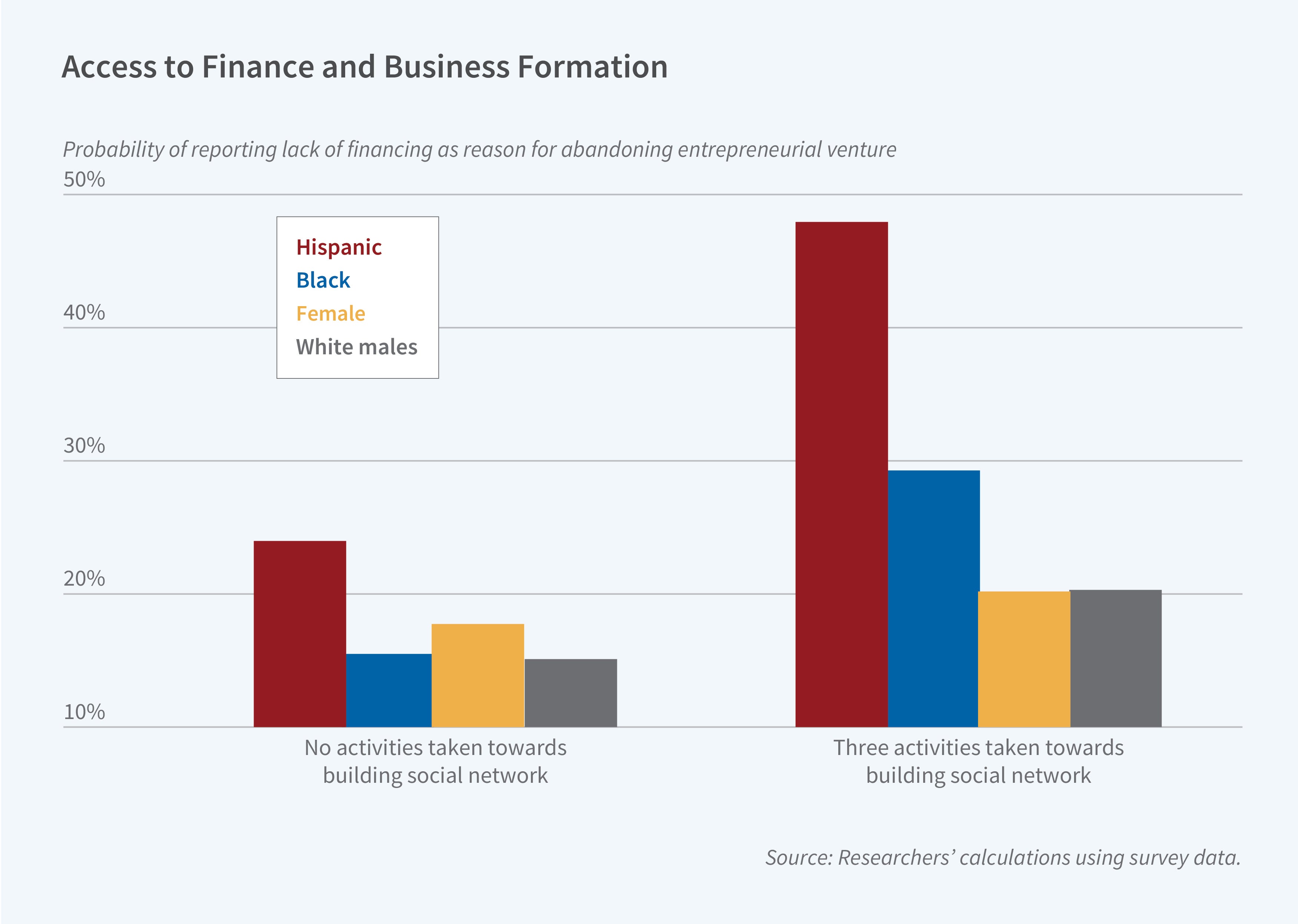Social Networks and Minority Entrepreneurship

Despite decades of effort to expand entrepreneurial opportunities, significant racial and gender disparities persist in business formation rates. An innovative study examining this gap reveals that differences in social network access and utilization may be the critical factor behind these persistent disparities.
In Why Aren't There More Minority Entrepreneurs? (NBER Working Paper 33229), researchers Victor M. Bennett and David T. Robinson investigate entrepreneurial disparities through a novel theoretical framework that separates entrepreneurial activity into three distinct stages: idea generation, viability assessment, and execution. Using nationally representative survey data, they analyze entrepreneurial pathways and identify points where underrepresented groups face unique barriers.
Low rates of entrepreneurship among racial minorities stem primarily from limited access to and utilization of social networks.
The researchers find that Black and Hispanic individuals report higher entrepreneurial intentions than their White counterparts. They also have greater confidence in their business ideas' survival and growth potential. However, they are significantly less likely to launch ventures once ideas are conceived.
The researchers identify social network access and utilization as a critical explanation of this gap. Black respondents are less likely than members of other groups to discuss business ideas with peers or personal acquaintances. When seeking expertise, Black entrepreneurs more frequently approach strangers than leverage existing personal networks. This pattern differs markedly from that of other demographic groups. Hispanic respondents, for example, show higher rates of idea socialization with friends. Women are more likely to discuss ideas with friends but less likely to engage with subject-matter experts.
The study demonstrates that differences in socialization significantly impact business formation outcomes. Taking more socialization steps correlates with more capital-seeking behavior and a higher probability of business launch. The relationship between socialization and capital seeking is weakest among Black respondents and strongest among women. The researchers hypothesize that anticipated capital constraints may influence entrepreneurs' efforts in developing business ideas.
Geographic variation provides further evidence of social networks' importance. In areas with higher concentrations of same-group minority business ownership, Black and Hispanic entrepreneurs show significantly stronger relationships between social engagement and successful business formation.
The researchers also examine how socialization influences the reasons entrepreneurs abandon business ideas. Those who engaged in more socialization steps were more likely to cite anticipated financing difficulties as their reason for stopping—an effect particularly pronounced among Black and Hispanic respondents. This suggests that socializing may provide information on potential barriers to a successful business launch.
These findings have important implications for entrepreneurship development programs and policies, suggesting that approaches focusing solely on increasing capital availability or entrepreneurial education may be insufficient without addressing social network barriers.
The researchers acknowledge survey funding from the Ewing Marion Kauffman Foundation.


